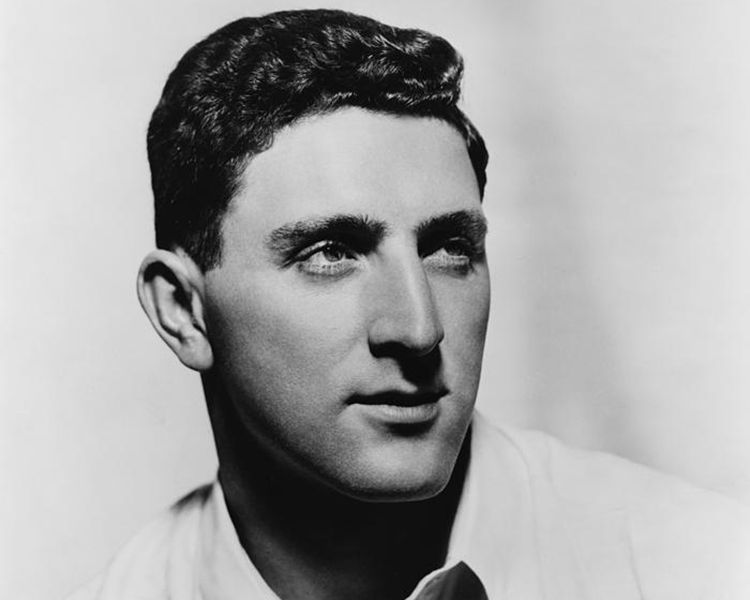Issue 4, Winter 1953

INTERVIEWER
You know, I’ve been reading that story you spoke about, the last one in your collection of short stories Mixed Company, the one called “The Green Nude.” It’s pretty funny.
IRWIN SHAW
What do you mean by that? Pretty funny?
INTERVIEWER
As a matter of fact, it’s very funny. A very funny story.
SHAW
Damn right it’s funny. Didn’t I tell you it was?
INTERVIEWER
(Placatingly). No, I really mean it’s a funny story. A damn good one. I didn’t mean . . .
SHAW
I told you it was funny.
INTERVIEWER
Yes, I remember you did, and you were quite right too . . .
SHAW
Well, that’s good. Let’s get this thing started right. I don’t want to have to start by throwing you out of here.
INTERVIEWER
(Tentatively). Yes, we don’t want this to read “exit one interviewer,” at least not so early in the piece . . .
SHAW
(Laughing, effusive once more). Here, let me fix you a drink.
§
Irwin Shaw is not always as sensitive when discussing his own work. But he is a writer intensely proud of his creative efforts: two best-selling novels, The Young Lions and The Troubled Air; a number of plays; and short stories considered among the finest in contemporary literature. His sensitivity is somewhat belied by his physique, for at first sight there is little in Irwin Shaw of what is popularly imagined as the sensitive artist. He has the heavy shoulders and short legs of the backfield star, the muscled forearms of the pelota champion (which, ironically, is one of the few sports he doesn’t play), and the large, close-cropped head typical of another of his pleasures—boxing. Ernest Hemingway once told the author Peter Viertel that there is only one way to handle Irwin Shaw in a boxing match: “Rip off your glove and sink your fingers deep into the bulge of his forearm, severing a few of the muscles there and rendering the arm more or less useless.” Hemingway demonstrated on Viertel, who has the scars left to prove it, along with the rueful admission that there isn’t a man around, much less Irwin Shaw, who can stand up to that sort of punishment.
Irwin Shaw has had to fight for success from the start. Born in the Bronx, he is one of the few inhabitants of that community who recognized its limitations and from the age of twelve made a concerted effort to get himself enough money to cross the East River into Manhattan. He has come a long way from the Bronx. He reached Manhattan, then Hollywood, and in the past years has lived in Europe: in Paris, in Rome, and now, the summer of 1953, in a villa perched on one of the foothills of the Pyrenees, with a view over the pink roofs of Saint-Jean-de-Luz to the lighthouse of Ciboure and the sea. In such pleasant surroundings, happy with his lovely wife and young son, Irwin Shaw continues to write with the concentration and driving energy that have brought him here: writing for him is an intense and private occupation that allows no spectators from the outside world. He refuses to discuss work in which he is currently engaged. In the mornings he won’t be disturbed; his wife answers the phone for him. In the afternoons he abandons his typewriter for other activities, all performed with enormous vigor. He plays a ferocious brand of tennis on the courts of the Chantaco Club in Ascain down the road, or travels at great speed in his Hillman-Minx across the Spanish border to the bullfights. In the evening, more often than not, Irwin Shaw plays chemin de fer in the casino in Biarritz, again with an intensity that is said to discourage those who consider calling “Banco” when he holds the deal. Even when relaxed at home, turning a large martini glass in his hand, Irwin Shaw dominates a room that includes a brown grand piano; an impressive panoramic view of the Pyrenees; a tapestry-sized portrait of an iron-faced woman on a green horse, one Maria-Léonie Mortier de Trevisé, Princesse de Fancigny-Cystria (the landlady, Irwin Shaw calls her); and four ceiling-height sepia-brown plaques depicting the four seasons. All these Irwin Shaw overpowers, his laugh one of zestful enjoyment of life, and his humor the sharp, quick natural wit peculiar to one whose formative years were spent in Brooklyn.
When the interviewers called on Irwin Shaw, they found him with a huge bandage encasing his left hand. It turned out that it covered a wound inflicted by the convertible mechanism of his Hillman-Minx clipping down hard at the end of his fingers, an accident jarringly out of character. The interviewers were sympathetic, but pleased somehow; if only for a moment Mr. Shaw appeared in a more natural perspective, his tragedy the small polite domestic nuisance that occurs to the completely average citizen in his completely average home.
SHAW
Well, shall we get off “The Green Nude”?
INTERVIEWER
Mr. Shaw, did you begin by writing short stories, or plays?
SHAW
If you really want to know, my first job was writing Dick Tracy.
INTERVIEWER
You mean you wrote the words in the balloons of the comic strip?
SHAW
No, no, no. It was a radio show. I pushed Dick Tracy into situations and rescued him five times a week. It made me a living and gave me time to do my own writing.
INTERVIEWER
And you grew up in Brooklyn?
SHAW
I never left Brooklyn until I had made enough money to get out. I spent all my childhood and I did all my growing up there.
INTERVIEWER
There’s considerable Brooklyn background in your earliest stories.
SHAW
Naturally. It was the freshest in my mind then, when I started to write. But don’t forget that almost every writer will tell you that events that happened to him before he started writing are the most valuable to him. Once he starts writing he seems to observe the world through a filter. I believe that’s true about writers: that the unconscious observation of things, a kind of absorbing of life that goes on before he becomes a writer, that is what is most useful to him. When he starts observing things professionally and taking notes and trying to remember, he may collect a lot more but he loses the spontaneous quality and the flow. He becomes too systematic. It’s his job to be, but he never gets anything as valuable as what he got unconsciously. He has become the observer rather than the actor. The best portrayal of the type that I know is the character of Trigorin in Chekhov’s The Seagull, and then there’s Philip Quarles in Huxley’s Point Counter Point who wrote notes on his own reactions while his son was dying of meningitis.



